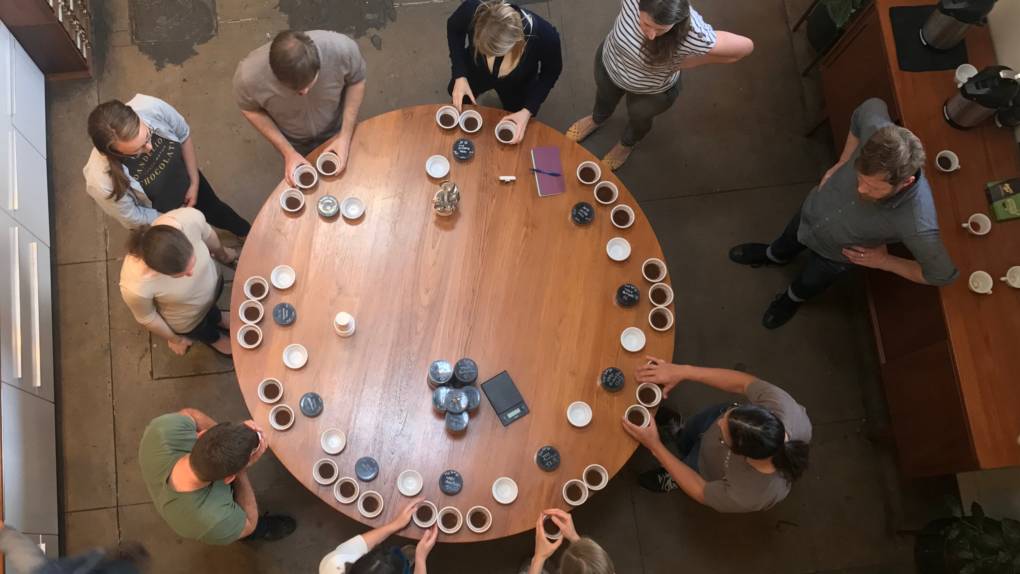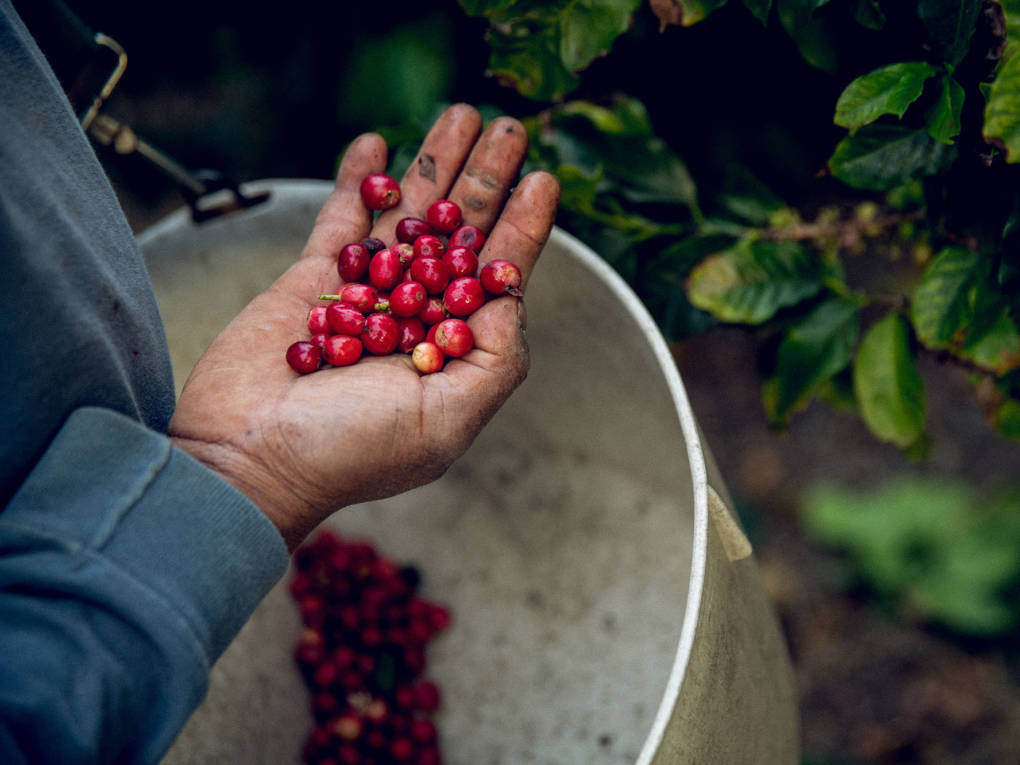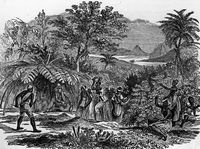What's So Great About Bay Area Coffee, Anyway?
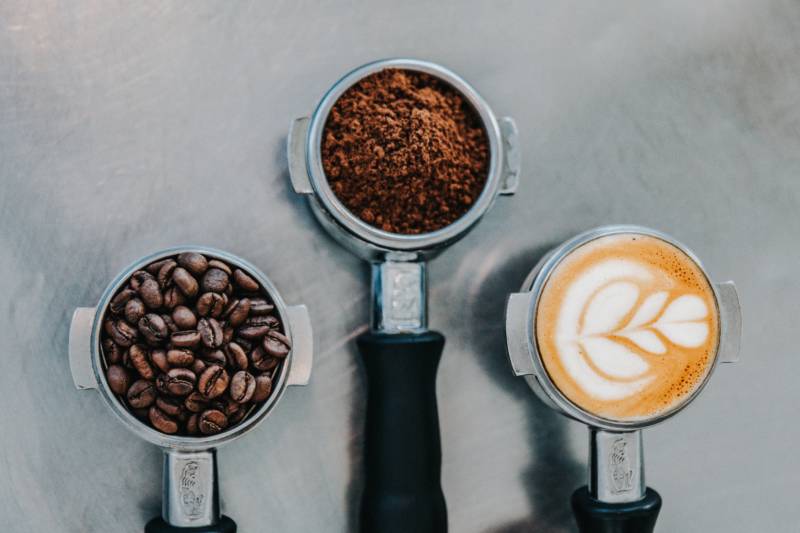
Cover photo by Nathan Dumlao on Unsplash
I remember the day I moved to the Bay Area. I had coffee at a small shop in Oakland — the sun was shining, folks from the neighborhood were milling about with their kids, and a woman with a comically small Pomeranian, one that you might expect has its own Instagram account, kept the café crowd entertained by throwing a bouncy ball around the store, prompting the dog to run and chase the ball around the room. It was some sort of magic.
Now, after living in and leaving the Bay Area, I keep coming back to the reasons why its coffee community is unlike any other. Although experiences like the one I shared perhaps aren’t unique to any one city, there are a number of factors that make the coffee industry and its people in the Bay Area truly special.
A Place to be a Coffee Professional
The Bay Area is a breeding ground for coffee professionals — not just the baristas who are picking up shifts to fill in gaps in their schoolwork or to supplement a second job, but folks who truly love their craft.
“My first day in the Bay Area, I woke up off my friend’s couch in Oakland and hiked over to the Temescal Farmers’ Market,” shares Evan Gilman, Creative Director for Royal Coffee, an importer based in Oakland, and its specialty coffee branch, The Crown. Eventually, Gilman ended up at Blue Bottle, an early tenant of the Temescal Farmers’ Market, and there he connected with a number of folks who started their careers at Blue Bottle and never stopped their journey through coffee.
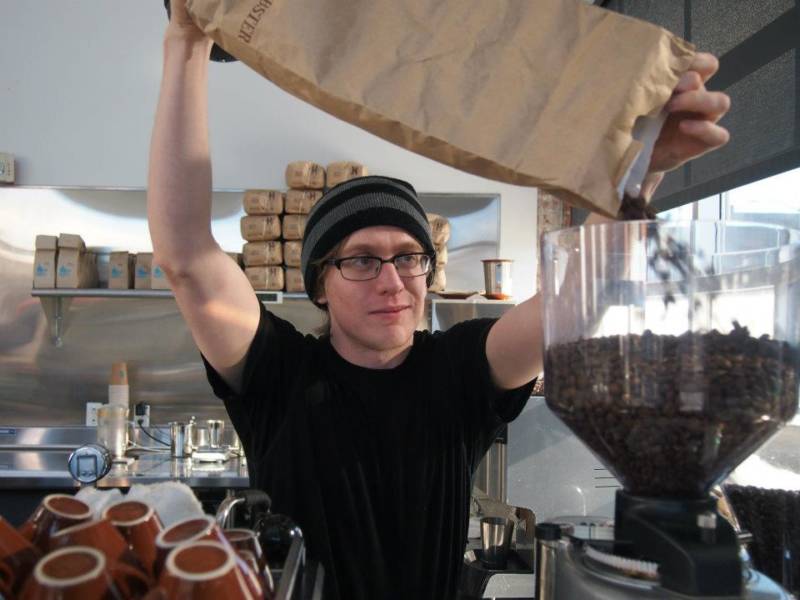
“The people I met and worked with went on to do admirable, incredible, amazing things. Blue Bottle was chock full of talented coffee people, and really drew the best people into the fold. I was fortunate enough to train some of them,” Gilman says. “James Parrish now has Rhetoric Coffee and works at the CoRo Coffee Room as the manager. I recently traveled with Alicia Adams, who now works as the Green Buyer for Red Bay Coffee. I work with Sandra Loofbourow, Ruthie Knudsen, and Jen Apodaca here at The Crown, and I worked with them all at Blue Bottle.”
And he knows that list only scratches the surface: “sorry if I’m forgetting anyone!”
Gilman, like many coffee pros who look to expand their careers in the Bay, works for an importer bringing in green coffee, or coffee before it’s roasted, from all over the world. The Port of Oakland is one of the main ports for green coffee, meaning that a number of importers call Oakland home.
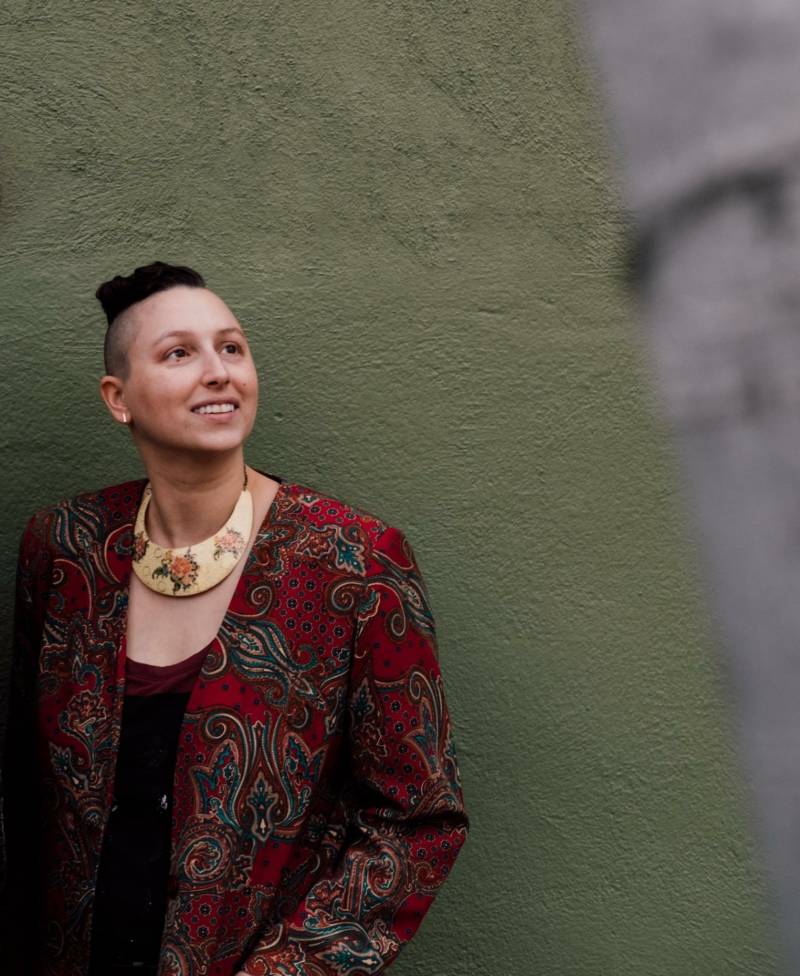
“What I think makes coffee in the Bay special is the diverse array of coffee professionals and businesses in the region,” says RJ Joseph, Lab Technician for Red Fox Coffee Merchants and freelance journalist. “Countless studies show that the more diversity teams have, the better they perform, and in the Bay Area, this couldn't be more true.”
Creating Equitable Communities
Along with writing and working for Red Fox, Joseph is also involved with local coffee organizations, and started Queer Cup with her wife, Ellan Kline, to address issues facing the queer coffee community in the Bay Area. “In particular, the community organizers who have taken the time to make the community what it is today are from diverse backgrounds and bring diverse unique perspectives to the table.” Kline says. “Even as the vast majority of coffee workers in the Bay Area (especially in positions of power) are white, the people from marginalized identities work hard to create and grow alternative space and uplift others, and I think that has a cumulative effect of making this a stronger space as a whole.”
Folks like Joseph and Kline came to the Bay Area specifically because of the opportunities to learn and expand their coffee careers. Kline is the Head of Retail Training for Ritual Coffee Roasters, which means she works with new and seasoned baristas to hone their skills over Ritual’s six retail locations.
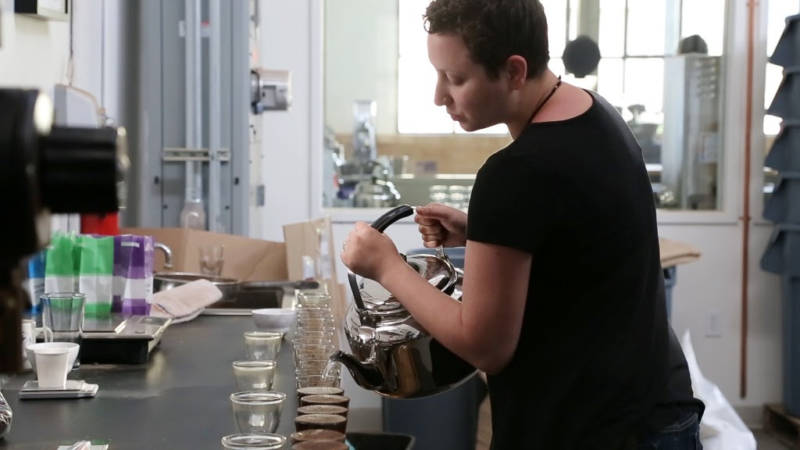
“I came to The Bay because, with the concentration of great cafes and roasters, it represented the possibility to create a career in coffee as a barista while still providing opportunities to advance that career,” Kline notes.
The diversity of both businesses and individuals in the Bay Area means that the coffee community is robust. “I think having so many different types of companies based here (nonprofits to importers to cafes) offers us a chance to have more nuanced conversations and diverse events,” says Jenn Chen, a coffee marketer based in San Francisco, “We don’t have only baristas on a panel. We’re likely to see an event with a producer in the same month as an event with a co-roasting organization. I love this variety and this constant desire among all of us to learn more about the industry.”
While these opportunities are enriching for coffee professionals, folks are starting to extend their hands out to customers as more and more events become available to the general public. “The Royal Crown [Royal Coffee’s retail and education space] just opened up, and they will be hosting a lot of great classes. Sweet Maria’s also does classes and events in their education space, and of course, there’s a Counter Culture training center in Emeryville,” notes Umeko Motoyoshi, CEO of umeshiso.com, which sells coffee gear to coffee pros and enthusiasts alike. Places like Counter Culture and Royal Crown do trainings on things like latte art, how to brew better coffee at home, and often host public coffee tastings open to anyone.
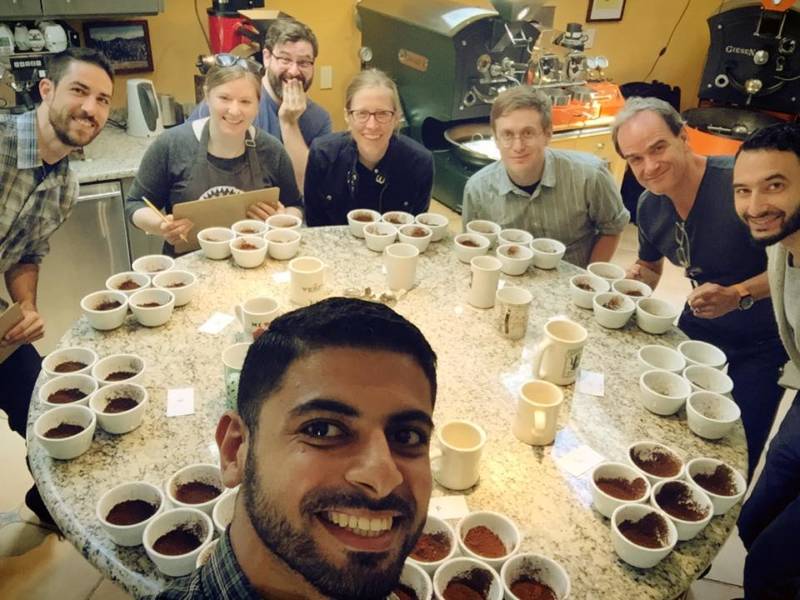
“It’s a really nice thing to see, especially with Oakland being a historic port town. The more coffee education, the better I think — especially since these classes are almost all open to the public. It helps to deepen the public’s understanding of why specialty coffee costs more, which is always a great thing,” says Motoyoshi.
Room To Grow
As knowledge rich as the community is, there are still concerns. Increasing rents threaten the livelihood of most coffee professionals — many who are baristas — and they can’t afford to keep up with the continuing rising cost of living.
“Many companies aren't able to pay enough to make ends meet and retain talent, and hardly anyone on the labor side makes a living wage,” Joseph shares.
“With the ever-increasing costs of living and operating continually accelerating ahead of wage raises, less and less coffee people are able to make it here for a significant amount of time,” Kline explains.. Many baristas have to work two jobs to make ends meet, but most still find the time to work with and engage in local community events.
However, Kline is hopeful that the Bay Area can set an example for how coffee pros can live a balanced life.
“One inspiring thing about that shift is that the sense of community is shifting from folks who are continually hustling, effectively working huge amounts of overtime for no pay in order to build community, towards folks who have stronger, healthier boundaries between work and the rest of their lives."
